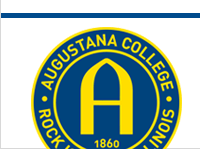Course
SOAN-450
Document Type
Student Paper
Publication Date
Spring 2020
Disciplines
Folklore | Food Studies | Scandinavian Studies | Social and Cultural Anthropology
Description, Abstract, or Artist's Statement
This paper explores the intersections between memory and food-making and how they inform a Norwegian-American cultural identity. Based on fieldwork done in June and July of 2019 in Fosston, Minnesota, I use lefse, a Norwegian potato-based flatbread, as a focal point, for analysis. I argue that lefse-making in Fosston acts as a medium through which residents engage with a collective memory of an immigrant heritage. This traditional food-making, I assert, relies on knowledge passed down through and across family lines allowing food-makers and eaters to experience an embodied connection to their cultural past. Investigating my own Norwegian heritage, I draw on British anthropologist Paul Connerton’s theory of structural amnesia, to examine how my own identity differs to that of Fosston residents. I posit that even when traditional foods like lefse are available, without the embodied experience of making them and the communal and familial food-making knowledge that informs the process, Norwegian-Americans are unable to fully synthesize traditional foods and a sense of identity. However, I claim that structural amnesia can be undone and identity reclaimed if these experiences and knowledge are reintroduced into the group.
Augustana Digital Commons Citation
Garbe, Rebecca. "Passing Down the Rolling Pin: Lefse, Memory, and a Norwegian-American Identity" (2020). Scandinavian Studies Student Award.
https://digitalcommons.augustana.edu/scanaward/4
Included in
Folklore Commons, Food Studies Commons, Scandinavian Studies Commons, Social and Cultural Anthropology Commons

